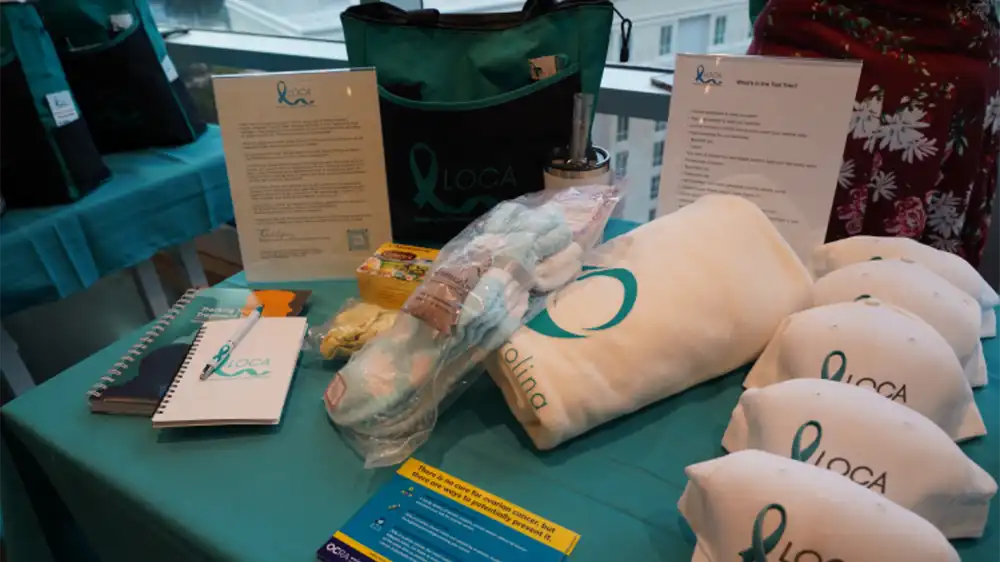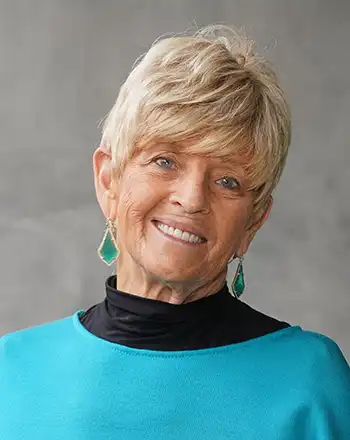
Receiving those three little words, “You have cancer,” is a shock to the mind and body, taking your breath away and instantly upending so many aspects of your life and priorities. This can seem to reverberate exponentially when the diagnosis has a grim rate of survival and longevity, like ovarian and other gynecological cancers. In the following days of confusion, frantically scheduling medical appointments and navigating uncharted waters, the experience can feel isolating and lonely, but organizations like the Lowcountry Ovarian Cancer Alliance (LOCA) strive to serve as a guide through the storm.

“Through LOCA, we can educate people and create awareness about ovarian and other gynecological cancers, and we act as a support system not only for those who have cancer, but also for their caregivers,” explained Sue Sommer-Kresse, Ph.D. As president of LOCA and a three-time survivor of ovarian cancer, she can empathize with others and wanted to start the nonprofit organization to make a difference in the lives of women with these cancers.
According to Sommer-Kresse, most gynecological cancers require major surgery, depending on the stage of diagnosis, followed by chemotherapy and/or radiation. “The five-year survival rate for ovarian cancer is about 50% and the chance of reoccurrence is about 70%. There is no test for ovarian cancer; an annual pap smear does not detect it. Thus, the majority of ovarian cancers aren’t detected until stage 3, at which point it’s progressed so much that the statistics are grim.”
Sommer-Kresse considers her survival of ovarian cancer to be a miracle, having overcome the odds three times since 2009. But she has found the silver lining of her repeated experiences and uses it to help others who find themselves in the same place that she can empathize with all too well.
“I’m passionate about trying to do something about this disease. I was spared and I’m so grateful,” she smiled. Through LOCA, she can spread the word.
LOCA endeavors to provide a ‘Bag of Hope’ to each woman in the Lowcountry who has been newly diagnosed with gynecological cancer. The bags include things like a warm blanket, a hat to wear during hair loss, warm socks, a journal and items to help with treatment side effects like itching and mouth sores.
Because HIPAA laws prohibit information about diagnoses being shared, LOCA cannot reach out directly to newly-diagnosed women. They must wait until they are contacted by the patient or a loved one and also give bags to cancer centers, doctors and nurse navigators in the hope that they are distributed.
The bags also include information about LOCA and a card inviting them to the Lunch Bunch. Every third Saturday of the month, LOCA provides a free lunch open to survivors of gynecological cancers.
“It’s a way for people to meet each other, share information, discuss their situations and know that they are not alone in this,” Sommer-Kresse said. The lunches served more than 100 women last year and do not require any obligation or regular attendance.
LOCA recognizes the significant toll these diagnoses can take on loved ones and hosts a support group for caregivers similar to the Lunch Bunch. The group meets quarterly at a restaurant and gives family members like spouses, siblings and adult children the chance to talk about their journeys as caregivers.
The organization creates awareness of LOCA wherever possible, at places like Second Sunday on King Street, health fairs, the Teal Arts Festival in Awendaw and Cocktails for a Cause at the Harbour Club at WestEdge. It also raises money through donations.
LOCA is making an impact in the medical community as well and Sommer-Kresse is the area facilitator for Survivors Teaching Students. The program, affiliated with the Ovarian Cancer National Alliance, connects with future medical professionals including medical and nursing students across 350 colleges and universities to educate them about ovarian cancer and how it affects their patients and the community.
To help make an impact in the lives of women fighting this disease, Sommer-Kresse invites people to donate or get involved in the organization. Or, if someone you know has recently been diagnosed, make sure they receive one of LOCA’s Bags of Hope and open that support network that is available to them and their caregivers.
“When a woman hears the diagnosis of ovarian cancer – or any gynecological cancer – it’s one of the bleakest moments in her life. She needs support, love, understanding and good information,” Sommer-Kresse shared. “At LOCA, we hope we can provide that to women. That begins with a Bag of Hope.”
Learn more about LOCA at locasc.org.
By Anne Toole

Leave a Reply